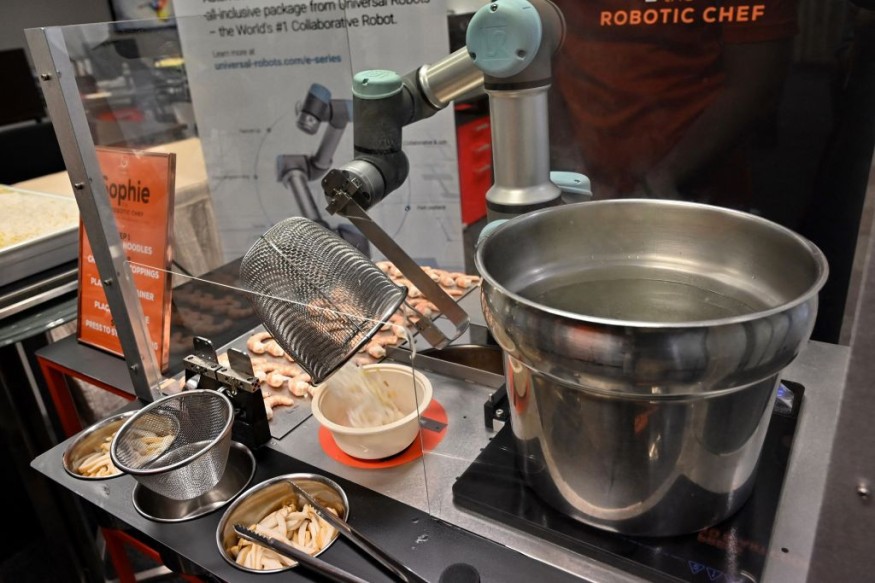A team of researchers from the University of Cambridge has successfully trained a "robotic chef" to observe and learn from cooking videos, enabling it to replicate the dishes. By providing the robot with a collection of eight simple salad recipes as a 'cookbook,' it was able to identify and recreate a recipe after watching a human demonstrate it in a video.
As per the news release via EurekAlert!, the robot expanded its culinary knowledge by incorporating information from the videos, ultimately devising its own unique recipe as a result.

Training a Robot to Cook Like Humans
Robotic chefs have long been a staple of science fiction, but in reality, teaching a robot to cook is a complex task. Although prototype robot chefs have been developed by commercial companies, they are not yet widely available and fall short compared to human chefs in terms of skill.
However, researchers from the University of Cambridge aimed to address this challenge by training a robot to learn recipes incrementally, just like humans do through observation.
For their study, titled "Recognition of Human Chef's Intentions for Incremental Learning of Cookbook by Robotic Salad Chef" published in IEEE Access, the team designed eight simple salad recipes and filmed themselves preparing them. They utilized a publicly available neural network that had been trained to recognize various objects, including the fruits and vegetables used in the recipes.
The robot used computer vision techniques to detect which recipe was being produced by evaluating each frame of the video and distinguishing distinct items, characteristics, and behaviors of the human demonstration. If a knife and a carrot were both identified, the robot may infer behaviors such as cutting a carrot.
Impressively, the robot accurately identified the correct recipe in 93% of the videos, despite only detecting 83% of the human chef's actions. More so, a similar report in Science Daily reveals that the robot could also differentiate between variations in a recipe and new recipes, adapting its cookbook accordingly. The robot successfully recognized a new ninth salad recipe, added it to its repertoire, and made it.
The researchers were amazed by the robot's ability to discern subtle nuances. While the recipes were relatively simple, such as chopped fruits and vegetables, the robot could differentiate, for instance, between two chopped apples and two chopped carrots versus three of each.
This study demonstrates the potential for robots to learn cooking techniques through video-based observation, providing a valuable step toward the development of more capable and adaptable robotic chefs.
READ ALSO:
Will Robotic Chefs Replace Humans?
As TechSpot reported, the researchers in the study filmed the recipes themselves without using fancy transitions or fast cuts commonly seen in online cooking videos.
This approach was necessary to provide the robot with a clear view of the ingredients and prevent it from struggling with rapid movements. However, the researchers anticipate that in the future, robot chefs will be able to learn recipes more efficiently from videos shared on social media platforms.
Despite concerns about robots replacing human cooks in restaurants, such a scenario is unlikely to happen anytime soon. While AI chatbots can potentially replace order-takers in drive-thru restaurants, replicating the skills of human cooks is extremely challenging.
Although robotic chefs are marketed as masters in the kitchen, they lack the senses of touch, taste, and smell required to create high-quality meals. These machines also depend on precise ingredient placement, require supervision during cooking, and come with a hefty price tag, making them impractical for most restaurants.
RELATED ARTICLE : Robot Chef That Cooks Omelettes Learns to Assess Taste of Dish During Chewing Process
Check out more news and information on Robots in Science Times.










